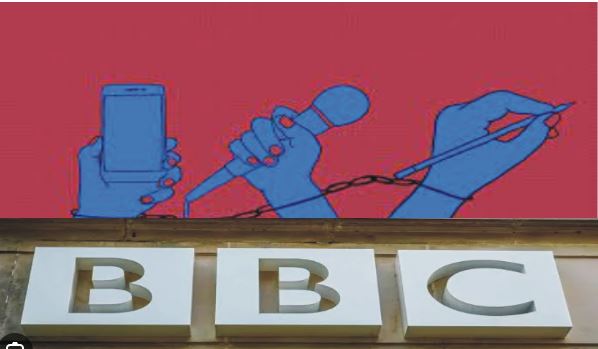
BBC article on media freedom in Kashmir draws ire of police, threatens legal action
text_fieldsKashmir: The BBC article titled 'Any story could be your last – India’s crackdown on Kashmir press,' published on Friday, has drawn the ire of the Jammu and Kashmir Police, who claim that the article portrays their work negatively and have issued a warning of potential legal action against the British broadcaster.
The article, which was based on interviews with over two dozen media persons, raised concerns among journalists who see government actions, including filing criminal cases and employing preventive detention laws, as a warning to them.
Journalists Asif Sultan, Sajad Gul, and Irfan Mehraj were specifically mentioned in the piece, with cases against them invoking the Unlawful Activities (Prevention) Act and criminal conspiracy charges.
One notable case mentioned was that of journalist Fahad Shah, who has been arrested under the Unlawful Activities (Prevention) Act. The police assert that a court has framed charges against Shah for allegedly providing a platform for advocating terrorism through his online magazine, Kashmir Walla, which allegedly published inflammatory and secessionist articles.
The Jammu and Kashmir Police also criticized the author of the BBC article, Yogita Limaye, for using quotes from unidentified journalists to support her claims of state overreach against journalists. They argue that this misrepresents the situation in the Union Territory.
The police statement, posted on social media platform X (formerly known as Twitter), emphasized that they maintain the highest standards of professionalism and operate within the boundaries of the law.
They further noted that the State Investigation Agency (SIA) of J&K Police, responsible for investigating the Fahad Shah case, retains the right to pursue additional legal action against the media outlet for misreporting facts in a case that is currently sub judice.
While the article highlighted journalists' fears of state reprisals, it also acknowledged concerns about potential reprisals by militants. It referenced the 2018 killing of Shujaat Bukhaari, the editor of the Rising Kashmir daily, and noted that the trial in his case has yet to commence.
This controversy raises questions about the delicate balance between press freedom and national security concerns in the region, with journalists expressing their concerns over potential threats to their work, while authorities insist they are acting within legal boundaries.























